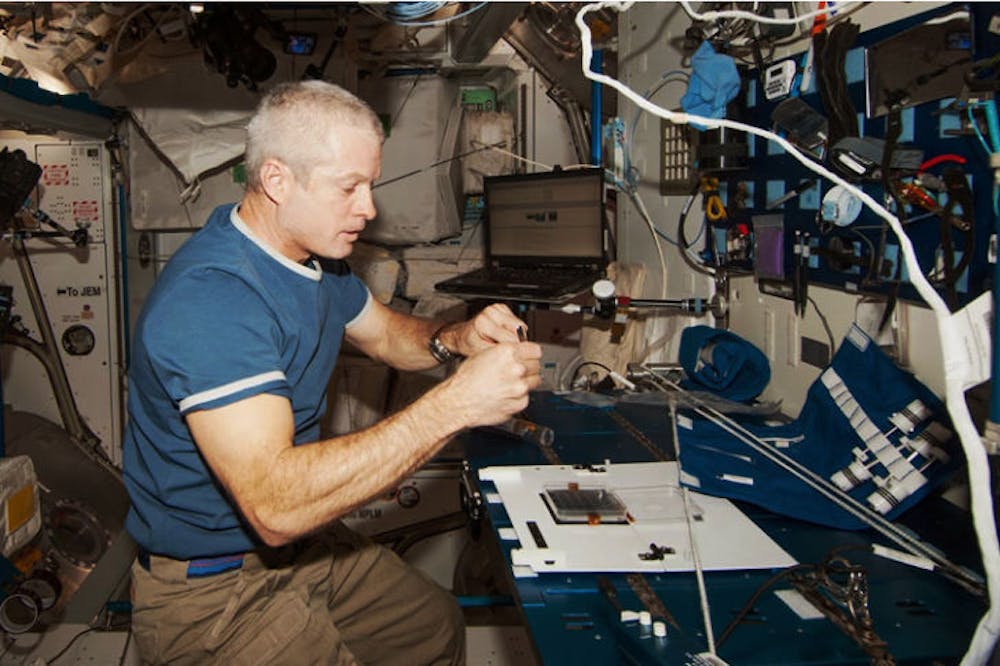A plant experiment designed by two UF researchers returned from the International Space Station last week.
After orbiting the Earth for two weeks on a NASA cargo ship, the plants have touched down safely at Kennedy Space Center, where they were returned to UF researchers.
Anna-Lisa Paul and Robert J. Ferl, the two researchers who designed the experiment, are studying the effect light has on root growth in zero gravity.
The seeds, Arabidopsis, were grown in a petri dish, Paul said.
Arabidopsis is considered the model seed for plant experiments, said Eric Schultz, a 25-year-old UF graduate student studying plant molecular and cellular biology under Paul and Ferl.
There are two factors that cause root growth, light and gravity, but gravity tends to overshadow the role light plays on root growth.
“We want to see how much of an influence light has on roots grown without gravity as a factor,” Schultz said.
The plants returning from outer space are going to be compared and analyzed to seeds grown on Earth on June 11.
“We’re looking at the pattern of gene expression in novel environments,” Paul said. “Space flight is outside evolutionary history.”
The plants will have to adapt to this new environment, which can be difficult because of the different atmospheres, said Karen Koch, a UF researcher and professor in plant molecular and cellular biology.
“It’s very hard for them to maintain air pressure as on Earth,” said Koch.
This experiment will show how plants can adapt in space, which is vital for space exploration because plants are essential for extended exploration.
“When we leave Earth’s orbit, we will take plants with us,” she said.
[A version of this story ran on page 5 on 6/10/2014 under the headline "UF experiment returns from space"]
Steven Swanson harvests plants in orbit via Kennedy Space Center Fixation Tubes. By eliminating gravity, plants have to adapt to new environments. This experiment will lead to a better understanding of the effect space has on organisms and can lead to new knowledge of space exploration.






